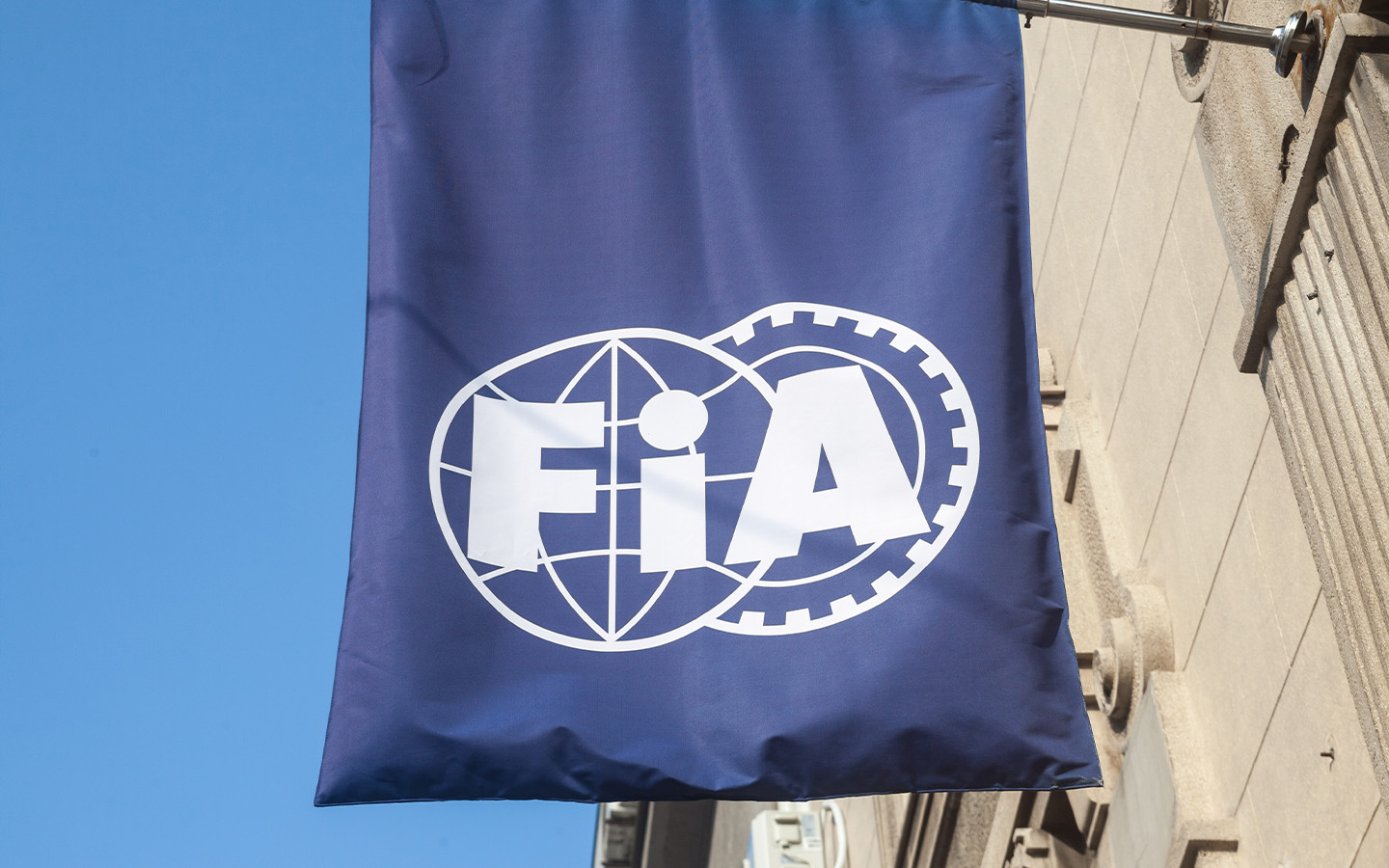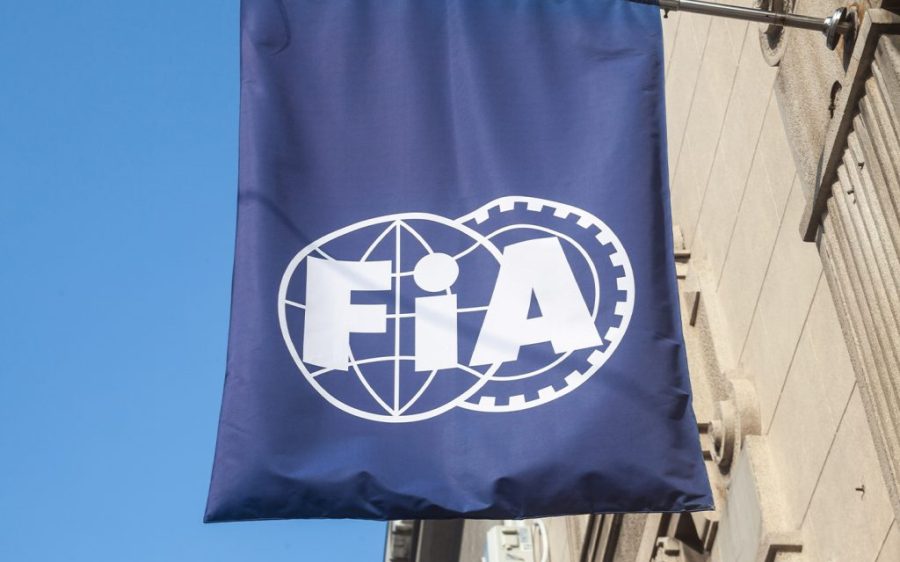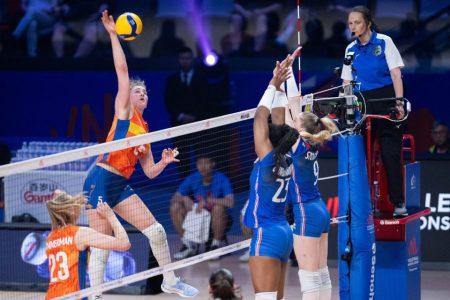The FIA Annual Conference took place for the first time in Macao last week at the Galaxy International Convention Centre. The 3-day conference, held from 10 to 13 June, brought together 245 motorsport organisations from 149 countries in a forum for collaboration, exchange, and strategy-setting.
With a strong emphasis on sustainability and innovation, the conference highlighted the FIA’s dual mission – advancing both motorsport and mobility. From thought-provoking panels on climate action and safe transport to in-depth workshops on grassroots racing, the sessions reflected a growing urgency of the need to shape a future that is equitable, efficient, and inspiring for all road users and racers.
Macao News spoke with two FIA leaders – Willem Groenewald, secretary general for automobile mobility, and Emilia Abel, director for road sport, on the sidelines of the event. Their insights showcased the FIA’s evolving priorities, from urban safety to accessible motorsport.
Willem Groenewald: Leading the shift toward safer, smarter mobility
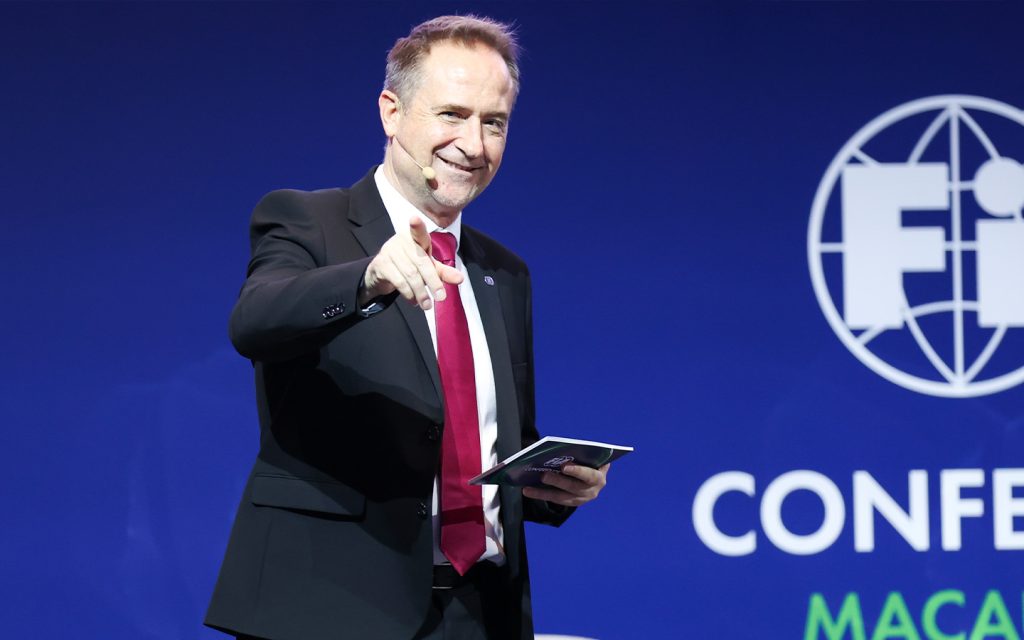
Groenewald brings years of national experience to a global motoring stage. The former President of the Automobile Association of South Africa joined the FIA headquarters in 2024.
One of the key themes Groenewald focused on was road safety. He cited the new Road Safety Index and awareness campaigns as tools that can transform public behaviour. “In Australia, 1,266 lives were lost last year due to road crashes, yet road safety doesn’t rank high in public consciousness. That needs to change.”
He noted that the AAMC was one group from Macao that has particularly helped the youth learn about mobility and road safety initiatives. “On the sports side, they are involved in karting from as young as four years old up to adults, as well as the Macau Grand Prix from an adult perspective,” Groenewald told Macao News. He said he appreciated their efforts to educate schools and students while also conducting sessions to raise awareness about road safety.
Sustainability is also becoming a central focus of motoring. Groenewald spoke about the importance of preserving heritage in motorsport while embracing innovation, pointing to advancements like Formula E, which operates entirely on electric vehicles, and Formula 1’s introduction of 100 percent sustainable fuels, albeit currently a more expensive option.
He also highlighted efforts to improve climate outcomes through reimagined urban infrastructure, smarter transit systems, and the adoption of clean technologies. In this respect, Macao, holds a strategic position. Groenewald pointed to its proximity to China’s manufacturing hubs, where 80 percent of raw materials for electric vehicles are sourced, while explaining that events like the Macau Grand Prix can shed light on challenges related to urban density and pedestrian flow.
“Motorsport can actually provide insights into how cities manage transportation in complex environments,” he told Macao News.
Emilia Abel on the future of motorsport
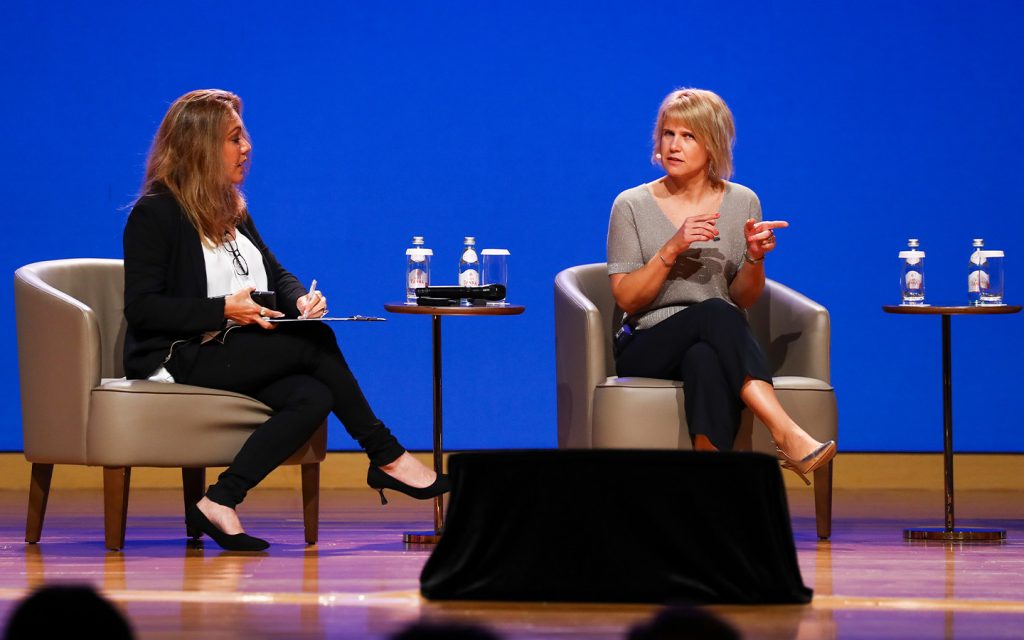
For Emilia Abel, the deputy director for road sport, and head of off-road categories, motorsport is not only evolving – it’s opening doors like never before. “We’ve made significant progress,” she told Macao News. “We now have a robust motorsport program and are breaking barriers for women in the industry. In my department alone, we have more female leaders than any other at the FIA.”
Abel highlighted the growing visibility of women across various roles in motorsport, including the appointment of a female category manager for the World Rally Championship. “That kind of representation is powerful. It proves that if you’re passionate and willing to work for it, anything is possible,” she says.
At the recent Women in Motorsport Summit in Seattle, Abel joined a panel alongside women drivers, team managers, and other FIA representatives to spotlight women’s contributions to the sport. “I’m living proof that showing your passion and daring to ask can take you far.”
While sustainability remains a major FIA focus, Abel emphasised that certain innovations, like hydrogen-powered vehicles, are still on the horizon. “The World Motorsport Council’s approval of hydrogen safety regulations is a big step, but we’re still a few years away from full grassroots integration,” she explained. “Manufacturers must lead the charge in developing the technology – our role for now is to set the legal and safety framework.”
Abel noted that while rallying is thriving in parts of the world, its presence in Asia remains limited. The region includes Rally Japan in the WRC and a handful of Asia-Pacific Rally Championship events, but the scale is small. She explained this is largely due to the complexity of organising rallies, whereas circuit racing is simpler and quicker to set up.
Abel also said multi-jurisdictional events, such as those spanning cities in the Greater Bay Area, are particularly difficult to manage from legal and logistical standpoints. However, she sees more promise in cross-country rallying – like Rally Raids – which are less demanding in setup and a history in Southeast Asia.
A key example she pointed to is the Asia Cross Country Rally (AXCR) – a long-standing event connecting Thailand and Cambodia. However, this year’s edition, which would mark its 30th anniversary, is under threat due to military tensions along the Thai-Cambodian border. It serves as a reminder of the geopolitical and logistical fragility that continues to challenge motorsport development in the region.
When asked what advice she would offer aspiring young women, Abel didn’t hesitate: “There’s no shortcut. You have to work for it. At the Women in Motorsport Summit, we talked a lot about the importance of passion and perseverance. Don’t be afraid to ask for opportunities, and never let perceived barriers stop you.”
She pointed to new initiatives such as the Women in Motorsport mentorship program and the Cranfield Motorsport Engineering Scholarship as key steps toward empowering the next generation of talent, regardless of gender.
Attending the FIA Conference in Macao, her second to date, offered Abel the chance to connect across continents, underscoring the importance of international collaboration. “Last year, I was new to the FIA and didn’t fully realise the big picture of these events. Now, I see how vital this network is – not just between the FIA and National Sporting Authorities , but among authorities themselves. I met representatives from places like the Maldives who are only just beginning their motorsport journeys. That’s incredibly inspiring.”
For Abel, the future of motorsport isn’t just about speed or spectacle – it’s about access, equity, and empowering everyone who dreams of a place on the track.
—With reporting by Julia Davis and Erico Dias
